Seminar Report – Smart Church: Youth initiatives for an efficient, vibrant, communicating Church
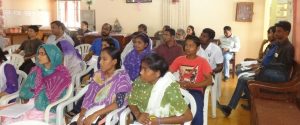 A seminar entitled “Smart Church: Youth initiatives for an efficient, vibrant, communicating Church” was held on February 17, 2015 at Azariah House at National Council of Churches in India (NCCI) campus in Nagpur. It was jointly organized by NCCI’s Commission on Communications & Relations and the Commission on Youth. The purpose of this seminar was to provide space for young people from our Churches to come together bringing their own experiences and ideas towards enhancing the ministries of the Church, especially in their organizational aspects, and particularly in terms of consolidating the communication systems, tools and processes. The program was attended by 28 participants from several protestant denominations as well as Roman Catholic orders.
A seminar entitled “Smart Church: Youth initiatives for an efficient, vibrant, communicating Church” was held on February 17, 2015 at Azariah House at National Council of Churches in India (NCCI) campus in Nagpur. It was jointly organized by NCCI’s Commission on Communications & Relations and the Commission on Youth. The purpose of this seminar was to provide space for young people from our Churches to come together bringing their own experiences and ideas towards enhancing the ministries of the Church, especially in their organizational aspects, and particularly in terms of consolidating the communication systems, tools and processes. The program was attended by 28 participants from several protestant denominations as well as Roman Catholic orders.
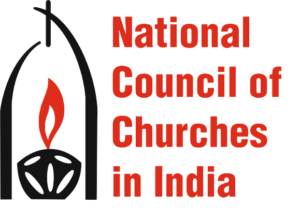
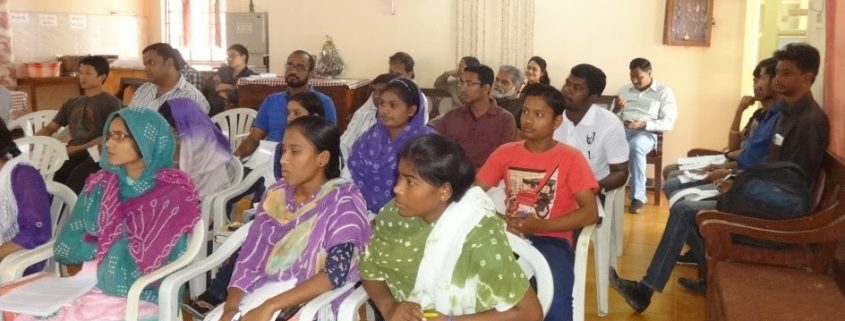

 Christian communities are now more frequently targeted for violence. In Delhi, in less than two months five Church buildings have been vandalized or burnt down. The police have not solved most of the cases and it has created a sense of fear among the Christian Community in India.
Christian communities are now more frequently targeted for violence. In Delhi, in less than two months five Church buildings have been vandalized or burnt down. The police have not solved most of the cases and it has created a sense of fear among the Christian Community in India.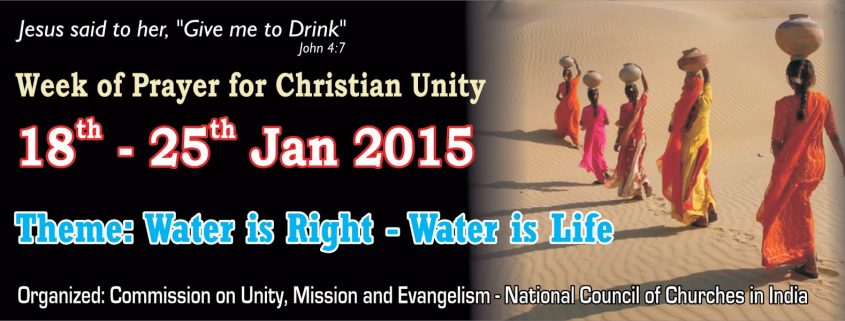
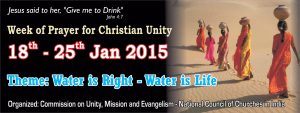 Nagpur (India) 14 Jan 2015 The Week of Prayer for Christian Unity is an international
Nagpur (India) 14 Jan 2015 The Week of Prayer for Christian Unity is an international 
 Church leaders representing the National Council of Churches in India (NCCI) and the Regional Christian Council of North West India met the President of India, Shri Pranab Mukherjee at Rashtrapati Bhawan on 24th December, 2014. The Church leaders greeted him on the occasion of Christmas and offered prayers for his health and for the Nation.
Church leaders representing the National Council of Churches in India (NCCI) and the Regional Christian Council of North West India met the President of India, Shri Pranab Mukherjee at Rashtrapati Bhawan on 24th December, 2014. The Church leaders greeted him on the occasion of Christmas and offered prayers for his health and for the Nation.
 We are in a crucial point of time in the Indian history, while we celebrate the Dalit Liberation Sunday in 2014. The grip of fascism and communalism becomes firm on Indian society. These regressive and dangerous elements are only the tip of the iceberg and the undercurrent of all these elements in India is casteism.
We are in a crucial point of time in the Indian history, while we celebrate the Dalit Liberation Sunday in 2014. The grip of fascism and communalism becomes firm on Indian society. These regressive and dangerous elements are only the tip of the iceberg and the undercurrent of all these elements in India is casteism.

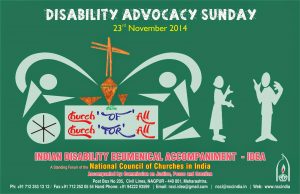 Disability Day, or the International Day of People with Disability, is a day that is sanctioned by the United Nations. The aim of Disability Day is to encourage a better understanding of people affected by a disability, together with helping to make people more aware of the rights, dignity and welfare of disabled people. Disability Day was founded in 1992 and is a day that is marked around the world by a variety of events held in many countries. The original name for this day was the International Day of Disabled Persons. The day’s origins date back to 1981 and the International Year of Disabled Persons, which was created to improve the lives of disabled people all around the globe, as well as to prevent disabilities from occurring in the first place. The Day is used for holding discussions, forums and campaigns relating to disability, and communities are encouraged to organise performances in their local area. These can range from hosting a musical to a play, and disabled people should be involved in these productions. The overall aim is to show that a person with a disability can be a vibrant member of society. Each year the day is celebrated there is an emphasis on a new aspect related to improving the lives of people living with a disability. In 2012 there was a call to help disabled people live in an inclusive society in every country, and to make sure that society was as accessible as possible for disabled people.
Disability Day, or the International Day of People with Disability, is a day that is sanctioned by the United Nations. The aim of Disability Day is to encourage a better understanding of people affected by a disability, together with helping to make people more aware of the rights, dignity and welfare of disabled people. Disability Day was founded in 1992 and is a day that is marked around the world by a variety of events held in many countries. The original name for this day was the International Day of Disabled Persons. The day’s origins date back to 1981 and the International Year of Disabled Persons, which was created to improve the lives of disabled people all around the globe, as well as to prevent disabilities from occurring in the first place. The Day is used for holding discussions, forums and campaigns relating to disability, and communities are encouraged to organise performances in their local area. These can range from hosting a musical to a play, and disabled people should be involved in these productions. The overall aim is to show that a person with a disability can be a vibrant member of society. Each year the day is celebrated there is an emphasis on a new aspect related to improving the lives of people living with a disability. In 2012 there was a call to help disabled people live in an inclusive society in every country, and to make sure that society was as accessible as possible for disabled people.
 The NCCI Centenary Rally started from the All Saints Cathedral, Sadar, halted at Samvidhan Square (near K. P. Ground, Opp. RBI) for Bishop Dr. Taranath Sagar’s (President of NCCI) public address, and continued back to All Saints Cathedral in a circular route. More than 3000 people from all denominations joined the Rally.
The NCCI Centenary Rally started from the All Saints Cathedral, Sadar, halted at Samvidhan Square (near K. P. Ground, Opp. RBI) for Bishop Dr. Taranath Sagar’s (President of NCCI) public address, and continued back to All Saints Cathedral in a circular route. More than 3000 people from all denominations joined the Rally.


 Times of India on 10th October 2014 reported that the Government is opposed to Dalit status for converts.
Times of India on 10th October 2014 reported that the Government is opposed to Dalit status for converts.